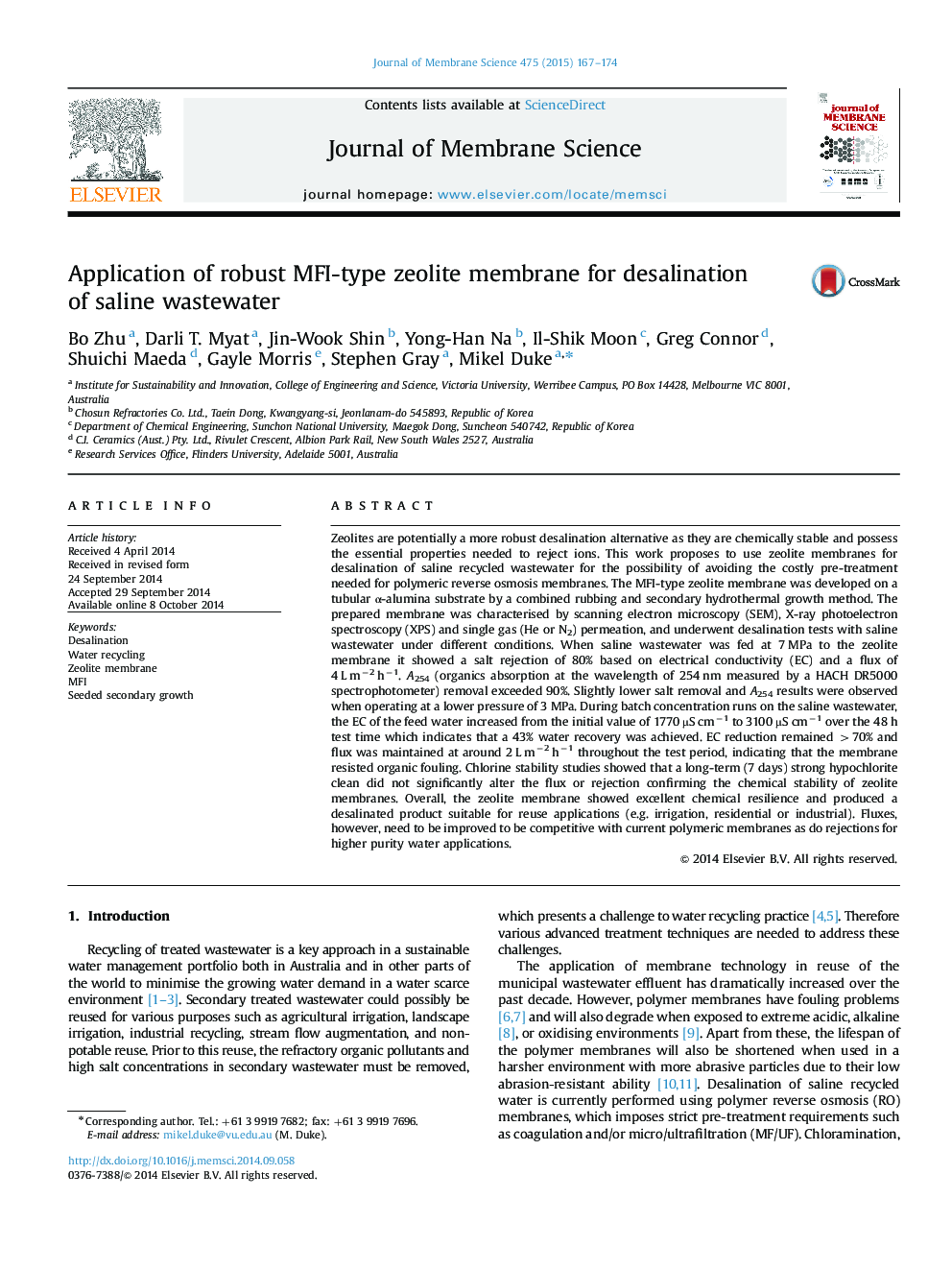| کد مقاله | کد نشریه | سال انتشار | مقاله انگلیسی | نسخه تمام متن |
|---|---|---|---|---|
| 633152 | 1456024 | 2015 | 8 صفحه PDF | دانلود رایگان |

• An approach to desalinate saline recycled wastewater by a MFI-type zeolite membrane is proposed.
• The membrane achieved a rejection of ≥90% for Ca2+ and Mg2+, and >70% for K+ and Na+ at ≥3 MPa and 21 °C.
• The membrane also removed >90% of organic compounds (aromatic and protein-like substances).
• The membrane withstood 168000 mg L−1 h of chlorine exposure confirming its high chemical tolerance.
• No changes in membrane structure were observed after exposure to the saline recycled wastewater.
Zeolites are potentially a more robust desalination alternative as they are chemically stable and possess the essential properties needed to reject ions. This work proposes to use zeolite membranes for desalination of saline recycled wastewater for the possibility of avoiding the costly pre-treatment needed for polymeric reverse osmosis membranes. The MFI-type zeolite membrane was developed on a tubular α-alumina substrate by a combined rubbing and secondary hydrothermal growth method. The prepared membrane was characterised by scanning electron microscopy (SEM), X-ray photoelectron spectroscopy (XPS) and single gas (He or N2) permeation, and underwent desalination tests with saline wastewater under different conditions. When saline wastewater was fed at 7 MPa to the zeolite membrane it showed a salt rejection of 80% based on electrical conductivity (EC) and a flux of 4 L m−2 h−1. A254 (organics absorption at the wavelength of 254 nm measured by a HACH DR5000 spectrophotometer) removal exceeded 90%. Slightly lower salt removal and A254 results were observed when operating at a lower pressure of 3 MPa. During batch concentration runs on the saline wastewater, the EC of the feed water increased from the initial value of 1770 µS cm−1 to 3100 µS cm−1 over the 48 h test time which indicates that a 43% water recovery was achieved. EC reduction remained >70% and flux was maintained at around 2 L m−2 h−1 throughout the test period, indicating that the membrane resisted organic fouling. Chlorine stability studies showed that a long-term (7 days) strong hypochlorite clean did not significantly alter the flux or rejection confirming the chemical stability of zeolite membranes. Overall, the zeolite membrane showed excellent chemical resilience and produced a desalinated product suitable for reuse applications (e.g. irrigation, residential or industrial). Fluxes, however, need to be improved to be competitive with current polymeric membranes as do rejections for higher purity water applications.
Figure optionsDownload high-quality image (87 K)Download as PowerPoint slide
Journal: Journal of Membrane Science - Volume 475, 1 February 2015, Pages 167–174